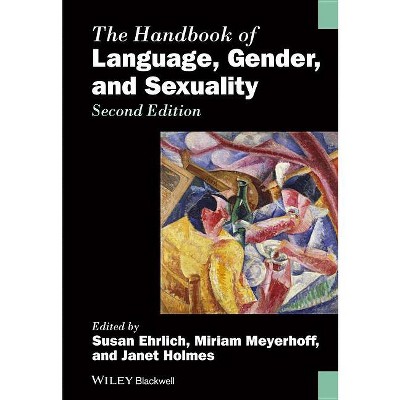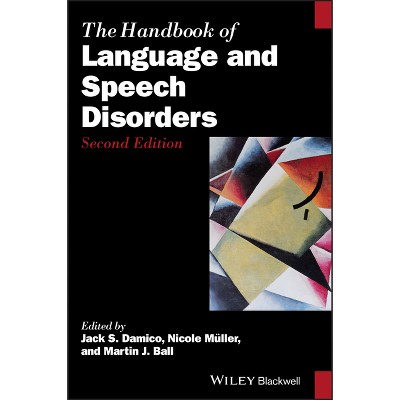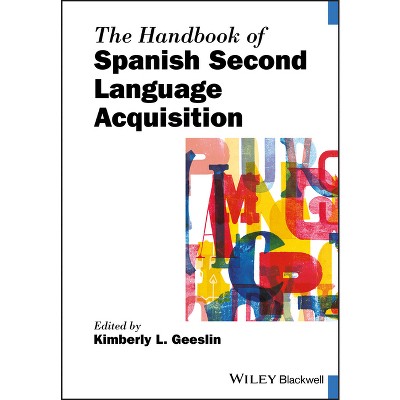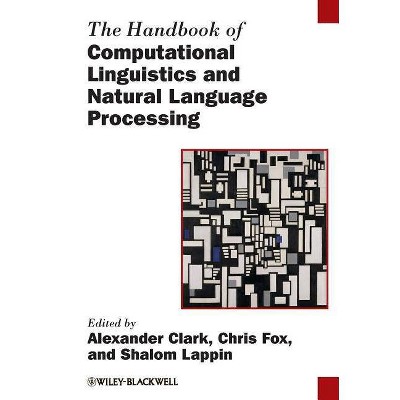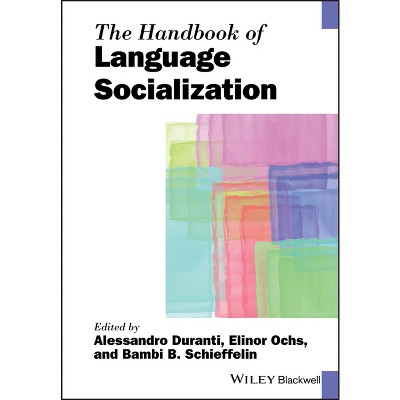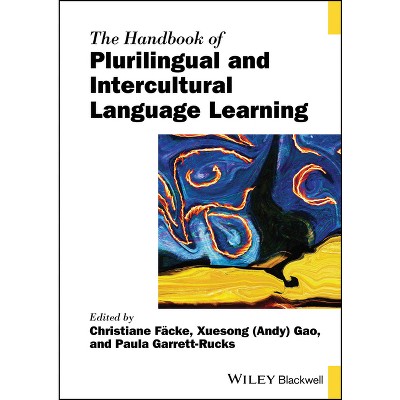The Handbook of Informal Language Learning - (Blackwell Handbooks in Linguistics) by Mark Dressman & Randall William Sadler (Paperback)

About this item
Highlights
- About the Author: Mark Dressman is Professor and Chair of English at Khalifa University in Abu Dhabi, UAE, and Professor Emeritus in the Department of Curriculum and Instruction at the University of Illinois at Urbana-Champaign, USA.
- 528 Pages
- Language + Art + Disciplines, Language Arts
- Series Name: Blackwell Handbooks in Linguistics
Description
About the Book
"The Handbook of Informal Language Learning is the first handbook-length resource in the field on a growing and hugely relevant area of research in second language learning. Divided into six sections: Theorizing Informal Language Learning; Digital Language Learning; Learning through Media and Others; Cultural and Historical Cases of Informal Language Learning; Informal Learning Applications in Formal Contexts; and The Future of Informal Language Learning, this Handbook offers a comprehensive assessment of second language learning outside of formal contexts. Authored by a prominent team of international experts in their respective fields, the individual chapters of the Handbook are masterfully brought together by the highly qualified editorial team of Mark Dressman and Randall Sadler. A state-of-the-art volume in a burgeoning field, The Handbook of Informal Language Learning is written so that it is accessible to a wide audience of researchers, teacher educators, and students of foreign language education, English as an International Language (EIL), TESOL, and media and communication courses"--From the Back Cover
Authored by a prominent team of international experts in their respective fields, The Handbook of Informal Language Learning is a one-of-a-kind reference work and it is a timely and valuable resource for anyone looking to explore informal language learning outside of a formal education environment. It features a comprehensive collection of cutting edge research areas exploring the cultural and historical cases of informal language learning, along with the growing area of digital language learning, and the future of this relevant field in national development and language education.
The Handbook of Informal Language Learning examines informal language learning from both theoretical and practical perspectives. Structured across six sections, chapters cover areas of motivation, linguistics, cognition, and multimodality; digital learning, including virtual contexts, gaming, fanfiction, vlogging, mobile devices, and nonformal programs; and media and live contact, including learning through environmental print, tourism/study abroad. The book also provides studies of informal learning in four national contexts, examines the integration of informal and formal classroom learning, and discusses the future of language learning from different perspectives.
The Handbook of Informal Language Learning is an essential resource for researchers, students, and professionals in the fields of language acquisition, English as a second language, and foreign language education.
About the Author
Mark Dressman is Professor and Chair of English at Khalifa University in Abu Dhabi, UAE, and Professor Emeritus in the Department of Curriculum and Instruction at the University of Illinois at Urbana-Champaign, USA. He has authored four books, including Using social theory in educational research: A practical guide (2008), and more than thirty journal articles on curriculum and the teaching of English as a first and other language.
Randall William Sadler is Associate Professor of Linguistics and Director of TESL and ESL at the University of Illinois, USA. He teaches courses on telecollaboration, virtual worlds, and teaching L2 reading and writing and focuses his research on technology in language learning. He is author of Virtual Worlds for Language Learning: From Theory to Practice (2012) and has published in many journals, including Journal of English for Academic Purposes, CALICO, ReCALL, Language Learning & Technology.






